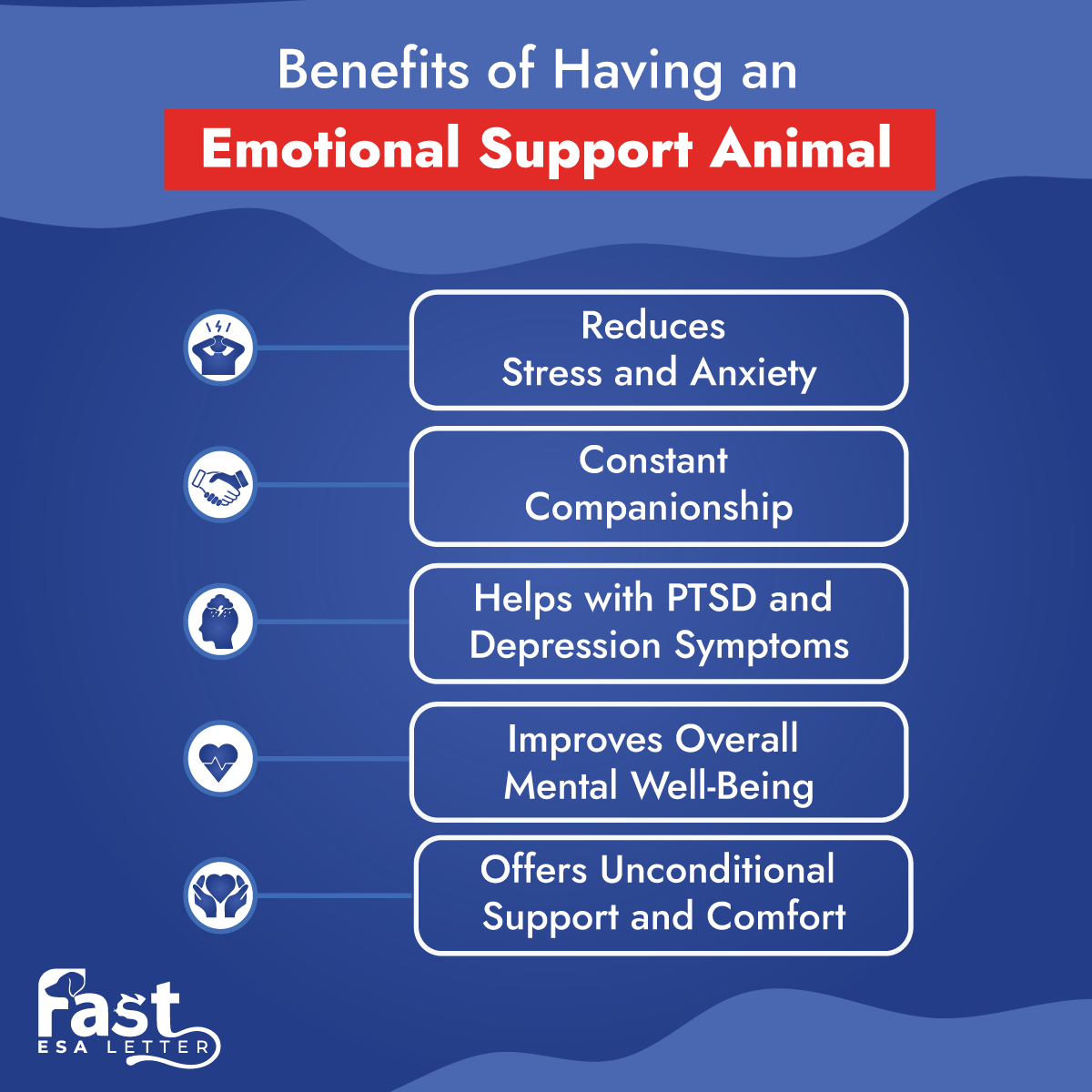No Results Found
The page you requested could not be found. Try refining your search, or use the navigation above to locate the post.

An ESA offers comfort and support for mental health, helping with anxiety, depression, or PTSD. No special training needed, but they come with housing rights!

Live Free with Your ESA!
An ESA Letter Unlocks Freedom!
An ESA Letter makes it possible.

Having an ESA comes with numerous mental health benefits that can positively impact quality of life. Here are some of the most notable benefits:

Emotional Support Animals are recognized under specific federal laws like the Fair Housing Act (FHA), which protects the rights of ESA owners in certain situations.
Some states impose additional requirements for ESA documentation. Notably, in Arkansas, California, Iowa, Louisiana, and Montana, new laws mandate that individuals seeking an ESA letter must establish a client-provider relationship with a licensed mental health professional for at least 30 days before they can receive valid documentation. This typically requires two consultations with the provider prior to qualifying for an ESA letter.
Note: As ESA regulations can vary significantly by state, it’s important to review your state’s specific ESA laws to ensure compliance with any unique requirements or restrictions.

Emotional Support Animals aren’t limited to dogs. While dogs and cats are the most common ESAs, other animals like birds, rabbits, and even miniature horses can serve as ESAs if they provide significant emotional support. Choosing the right type of animal depends on your needs, preferences, and living situation.
| Feature | ESA | SA | TA |
|---|---|---|---|
| Protections | Covered by FHA. | Covered by FHA, ADA, and ACAA. | Covered by ADA. |
| Access | Housing only. | Housing, Public Access, and Air Travel. | Permitted in specific settings. |
| Services | Emotional Support. | Performe disability related tasks. | Providing comfort in group settings. |
| Documents | ESA letter. | PSD Letter. | Permission from host locations. |
| Air Travel | Not covered. | Covered. | Not covered. |
Under the Fair Housing Act, landlords generally cannot deny ESAs, but they may require proper documentation, and certain conditions apply for housing exemptions.
ESAs do not require certification. Instead, you need an ESA letter from a licensed mental health professional.
Generally, an HOA cannot deny a valid emotional support animal request if the resident has a documented need for the animal to assist with a disability. Under the FHA, HOAs must make reasonable accommodations for emotional support animals, even if the property has a “no pets” policy. However, an HOA can deny the request if the animal poses a direct threat to others’ safety, causes significant property damage, or if the request would create an undue burden.
No, there is no legal requirement for an emotional support animal to wear identification, such as a vest or tag. However, some owners choose to have their ESA wear identification to help signal its role to others and reduce potential questions or confusion in public places.
The page you requested could not be found. Try refining your search, or use the navigation above to locate the post.